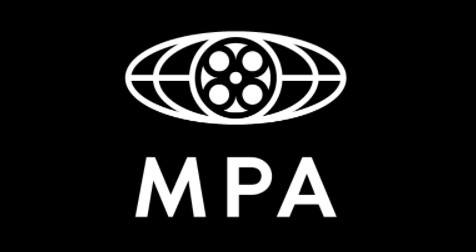 Despite the absence of any similar coordinated scheme in the United States, Disney, Netflix, Paramount, Sony, Universal, and Warner Bros. regularly criticize countries for not implementing measures to block pirate sites.
Despite the absence of any similar coordinated scheme in the United States, Disney, Netflix, Paramount, Sony, Universal, and Warner Bros. regularly criticize countries for not implementing measures to block pirate sites.
When they do, however, praise isn’t far behind/
In April 2021, the Philippines joined the growing list of countries to implement site-blocking measures, in this case one that needs no oversight from the courts. The voluntary agreement saw the Intellectual Property Office of the Philippines (IPOPHL), the National Telecommunications Commission (NTC) and the country’s internet service providers team up to block pirate sites in a swift and streamlined manner.
In the same month, IPOPHL announced the signing of a memorandum of understanding with the Asia Video Industry Association, which aims to increase information sharing alongside the development of piracy monitoring, site-blocking processes, and their implementation.
The MPA welcomed these voluntary moves, highlighting “bureaucratic process” as an enemy in the fight against piracy, a nod towards actually having courts decide whether sites should be blocked or not. This week the MPA and IPOPHL signed a new site-blocking agreement of their own.
Memorandum of Understanding
In an announcement Tuesday, IPOPHL revealed that it has partnered with the MPA, which commits to support IPOPHL “in developing an effective piracy monitoring system and a rolling site-blocking regime that will disrupt accessibility to piracy sites.”
“This newest partnership with MPA elevates IPOPHL’s whole-of-society efforts in fostering a digital environment that respects intellectual property (IP) rights,” IPOPHL Director General Rowel S. Barba said at the signing ceremony.
“Unfortunately, some people would watch illicit content because it is free rather than pay for legitimate ones, failing to see how this can destroy our economy and creativity as a nation in the long run.”
According to a recent survey, carried out on behalf of the Coalition Against Piracy, piracy increased in the Philippines during the pandemic. YouGov found that 61% of consumers in the Philippines admit to accessing pirate services versus the 49% of Filipinos that admitted to accessing piracy sites in September 2020. It is hoped that blocking pirate sites will help bring the numbers down.
“A site blocking framework, which incorporates transparency and due process, can be incredibly effective at reducing levels of online piracy in key markets like the Philippines,” says Jan van Voorn, the MPA’s Executive Vice President of Global Content Protection.
Transparency – Something Lacking in Site Blocking Processes
The statement from the MPA’s van Voorn that this framework will be transparent will be tested in time. The memorandum doesn’t appear to have been published so its precise contents remain a mystery for now. The announcement states that there will be a “lawful sharing of information” and the MPA has committed to conduct training on piracy takedown measures.
Other than that, transparency appears to be minimal, something that is becoming more evident in blocking practices elsewhere.
In the early days of site blocking in the UK, Europe and beyond, the legal processes that led to sites being blocked were indeed very transparent. Over time, however, there has been a shift towards keeping the details as secret as possible. Outside the content companies and cooperating Internet service providers, an accurate picture of how many domains are blocked is a complete unknown.
Ostensibly this aimed at keeping pirates in the dark to prevent circumvention but even processes that aim to remove hundreds of sites from search engines (something that cannot be circumvented) are conducted in private and in some cases voluntarily, between interested corporations.
As such, there appears to be no legal requirement to open these practices up to scrutiny.
MPA Praises The Philippines, US Govt. Not So Sure
In November 2021 at the MPA’s ‘Global Site Blocking Legal Conference’, the major Hollywood studios and Netflix gave the Intellectual Property Office of the Philippines a fancy glass award titled “Site blocking in Asia Pacific – Government Leadership Award.”
This suggests that the MPA probably likes what it sees in the Philippines vis-à-vis site-blocking and could press other countries to follow suit in the future. Behind the scenes, however, the MPA criticizes the country for not doing enough.
“Market access barriers for the region’s theatrical, television, and streaming industries take several forms, including content quotas, foreign investment limitations, and dubbing and advertising restrictions,” the MPA wrote in its submission to the US Government’s 2022 National Trade Estimate Report on Foreign Trade Barriers.
Local screen and content quotas applied to theatrical and/or payTV businesses “limit consumer choice and often contribute to piracy by restricting the licensed supply of content,” the MPA wrote, calling on the Philippines to “remove any consideration of a screen quota” in proposed legislative amendments.
The Philippines, along with countries including New Zealand, were also called upon to extend copyright terms from 50 years to 70 years, with the former also being called out for being “a safe haven for some top piracy websites.” On top, the Philippines was also criticized for having long been “a primary source of camcord piracy of major motion pictures.”
In its final report (pdf), the US Government recognized some improvements in the Philippines but noted that courts are influenced by bribery while “corruption is a pervasive and longstanding problem” in both national and government agencies.
Some of the activities of the National Telecommunications Commission (a key signatory to the earlier site-blocking memorandum) are “inherently non-transparent”, the US added, noting that the country overall is declining according to Transparency International’s Corruption Perceptions Index.





